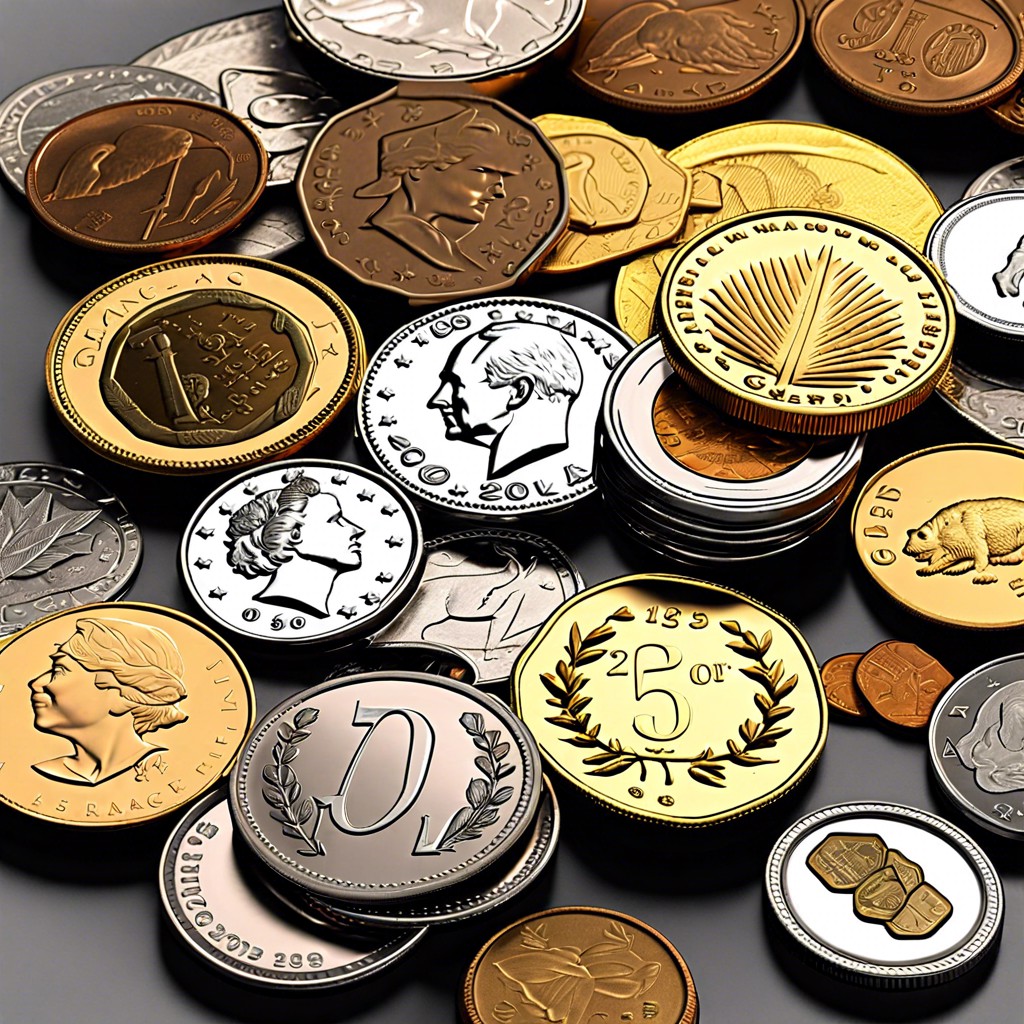Find out the optimal amount of change you should have on hand for a successful garage sale, ensuring smooth transactions and happy customers.
Key takeaways:
- Start with at least in coins: quarters, dimes, nickels, pennies.
- Ideal to have 0 in cash: Ten bills, five bills, two bills.
- 0 balance covers most sales, ensuring you’re prepared for busy times.
- Breakdown guide: 20 bills, 10 bills, 5 bills, quarters, dimes.
- Get change from bank, ATM, retail stores, friends – not your cat.
How Much Change in Coins to Have

Coins are a lifesaver at garage sales. They help you avoid those awkward penny-pinching moments when neither party has exact change. Start with at least $20 in coins.
- Focus on these:
- Quarters: Essential for those 75-cent deals.
- Dimes: Handy for those $1.10 purchases.
- Nickels: Surprisingly useful for that $1.35 odd pricing.
- Pennies: Because some folks really want that 99-cent item.
A good breakdown might be $10 in quarters, $5 in dimes, $3 in nickels, and $2 in pennies. It’s like having a small treasure chest at your fingertips!
Make sure to keep these coins in a separate, easy-to-reach container. That way, you won’t have to dig through wads of bills just to find a measly nickel.
How Much Change in Cash to Have
For a typical garage sale, having around $100 in smaller bills is ideal. This amount ensures you can handle change for early shoppers, who will often give you larger bills like $20s.
Break it down like this:
- Ten $1 bills: These are lifesavers for those $1 and $2 items.
- Five $5 bills: Great for mid-range purchases.
- Two $10 bills: Handy for larger amounts without depleting your smaller bill stash.
Having a mix like this prevents the dreaded “sorry, I don’t have change” scenario. Plus, it keeps your cash box organized and makes it easy to tally up at the end of the day.
And just think: with all those $1 bills, you’ll feel like a high roller at a less glamorous casino!
Why $100 in Change Is a Good Starting Point
Starting with $100 in change covers most small to medium sales. It strikes a balance between having enough and not feeling like a bank teller.
For a better idea, imagine selling items priced between $0.50 and $10. Shoppers will likely hand you $20 bills, and you need to provide change without running out.
Worried about exact amounts? Let’s break it down. Small bills help with lower-priced items, while coins handle those quirky price tags—like $1.25 or $2.50. Your customers will appreciate not needing to fish out their piggy banks.
This amount lets you stay prepared for busy times. Since mornings tend to attract more customers (with those precious $20 bills), keeping enough change ensures smooth transactions.
And if you don’t use it all, the leftover change simply records another day in your wallet.
Best Way to Break Down the $100 in Change
Here’s a quick guide to ensure you have the right change:
- Twenty $1 bills: Small items abound at garage sales. Having a good stash of $1 bills keeps those transactions smooth. Plus, you can feel like a high roller with a stack of singles.
- Ten $5 bills: Great for slightly pricier items, $5 bills are your trusty sidekicks, handling those mid-range sales with ease.
- Five $10 bills: When someone hands you a $20 for something that costs $5, you’ll feel like a superhero having $10 bills on hand.
- One roll of quarters ($10): People pay with quarters more often than you’d think. It’s also handy for rounding up to avoid giving bags of coins.
- One roll of dimes ($5): Not as essential as quarters, but still useful for fine-tuning smaller change.
Breaking it down this way keeps your transactions easy and your buyers happy!
Where to Get Change for Your Garage Sale
Local bank: Walk into your local bank and ask for specific denominations. They’re used to people requesting change, so don’t be shy.
ATM: Some ATMs allow you to choose your bills. Withdraw smaller amounts multiple times if needed.
Retail stores: Pop into a busy store; they usually have plenty of small bills. Politely ask if they can break a larger bill for you. Bonus if you buy something small while you’re there!
Friends and family: Hit up your network. They might have spare change lying around and will be glad to help you out.
Just avoid asking your cat for spare coins. They’re terrible with money.